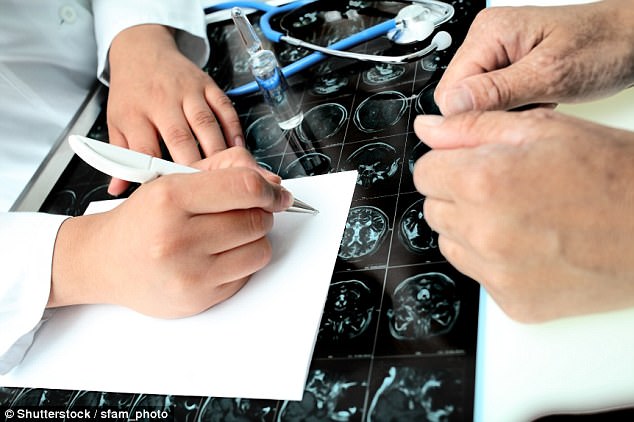Toxic proteins that cause Alzheimer’s can develop in your liver and kidneys, then migrate to the brain like cancer, shocking new study finds
11/12/2017 / By Rita Winters

No one really knows what causes Alzheimer’s, but recent studies on the disease are promising. Researchers at the University of British Columbia in Canada have discovered that Alzheimer’s-causing proteins can be formed in the liver and the kidneys, and then transported to the brain through the blood.
These toxic proteins, known as beta-amyloids, form clumps or plaques that destroy brain cells, causing memory loss and confusion. It is known to be produced by blood platelets, blood vessels, and muscles. Scientists recently discovered that these protein cells have the ability to be transported by the blood to the grey matter found in the brain, causing Alzheimer’s disease, a form of dementia.
This discovery provides a favorable direction to new methods of dealing with the neurodegenerative illness long before its symptoms take hold of the individual. Researchers are looking to develop drugs that stop or slow the disease before it gets to the brain. Unfortunately, majority of the drugs created to combat mental and other internal diseases prove to be ineffective and dangerous, given its many side effects.
The group of researchers, led by author and psychiatrist Professor Weihong Song, suggested that kidney dialysis may help remove the rogue proteins before it reaches the brain. However, due to the lack of studies, there is no concrete evidence that it will work. Laboratory experiments have provided proof that these beta-amyloids can be transferred through the blood. This experiment, called parabiosis, involved surgically joining two laboratory animals so they shared the same blood supply. Of these two subjects, one was healthy, and the other had Alzheimer’s. Results showed that the healthy subject “contracted” Alzheimer’s: the brain showed formations of tangled protein strands that disrupted normal bodily functions. The laboratory subjects died just a few months after diagnosis of the disease. Unnatural as it may be, it helped pave the way to understanding the abilities of beta-amyloids without testing human beings.
According to neurologist Professor Yan-Jiang Wang, the blood-brain barrier (BBB), a semi-permeable membrane that separates blood from the brain, weakens as we age, thus allowing these beta-amyloids entry to our brain. Beta-amyloids that enter the brain induces deficits in the functionality of neurons, resulting in dementia-related illnesses like Alzheimer’s. Around 850,000 people in the U.K. and 5.5 million people in the U.S. have dementia. Researchers predict it to double around the year 2050 because of the aging population.
There are supplements and medications currently available in the market that claim to help reduce the likeliness of developing Alzheimer’s. However, these supplements are not effective. Souvenaid, made by the company Nutricia, is no better than placebo, according to some clinical trials on people with Alzheimer’s. Dr David Reynolds, Chief Scientific Officer at the Alzheimer’s Research UK, reminds people that health can be achieved through a proper diet. He also warns people to avoid rushing to buy supplements with claims that have no scientific basis.
Like any other disease in the body, it is possible to avoid developing brain issues like Alzheimer’s through proper nutrition. Food is better than the medicines developed by companies that only want to make money out of human maladies. Aside from food, your lifestyle decisions are also important. Choosing to follow your circadian cycle helps your body regenerate after a long day. Keeping fit and engaging in regular physical activities reduces the time you spend sitting or lying down, and having a sedentary lifestyle. Taking great steps to overall well-being will reduce the chances of developing Alzheimer’s, as well as other diseases.
Sources include:
Tagged Under: Alzheimer's, Alzheimer's disesase, bad diet, biology, brain cancer, Medicine, Mental illness, neurodegenerative disease, prevention




















